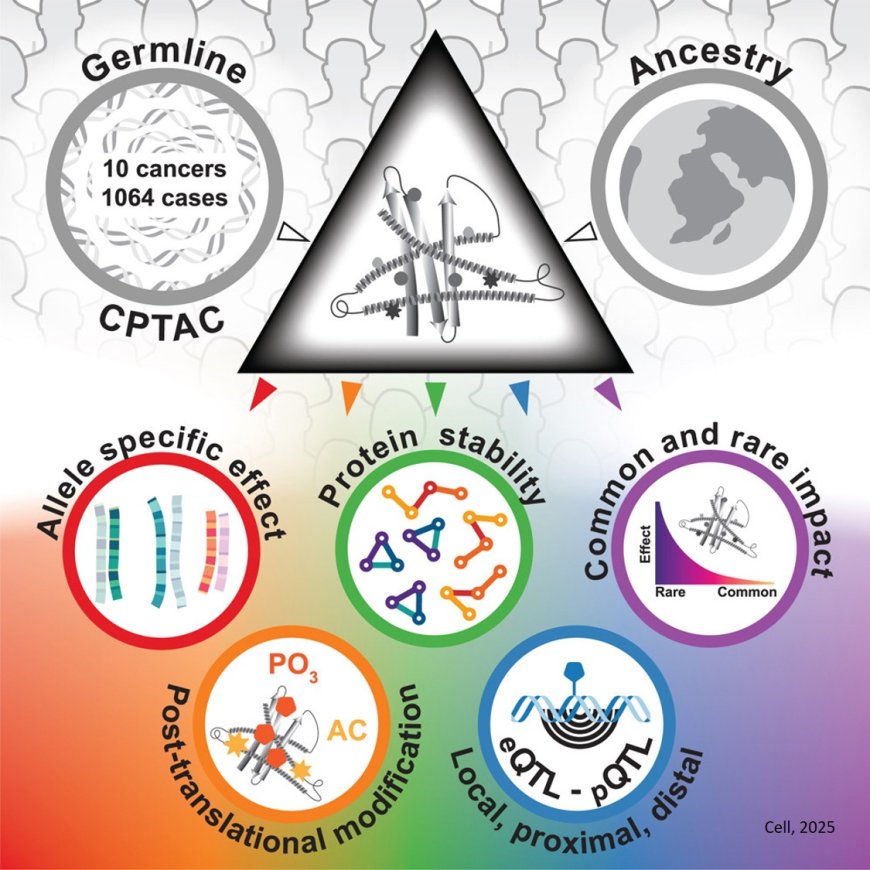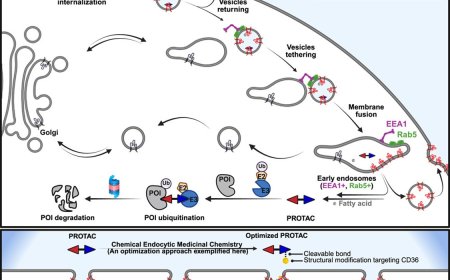Linking germline variants to cancer progression

In 2022, the Clinical Proteomic Tumor Analysis Consortium (CPTAC) investigated cancer cells, known for being massively altered, and explained how DNA mutations translate into altered proteins responsible of the abnormal behavior of cancer cells. Now, the same consortium has found evidence that many cancer patients actually inherited those protein-altering genetic variants right from their parents.
The study, published recently in the journal Cell, explores the effects of germline variants on cancer patients' proteomes, the complete set of proteins expressed in cells. Spanning over 1,000 patients and 10 different types of cancer, this research is one of the most comprehensive investigations of the relationship between inherited genetic mutations and the molecular mechanisms driving cancer.
The study takes advantage of the vast datasets produced by the CPTAC, including genomic, transcriptomic, proteomic, acetylomic, and phosphoproteomic information, to assess the impact of over 337,000 germline variants on protein expression and function. The team identified 119 rare and common germline variants in key cancer genes that alter protein structure and abundance. These variants were found to affect processes critical to cancer development, such as protein stability, post-translational modifications and signalling.
The findings underscore the importance of germline variants not only in increasing cancer risk but also in shaping the biology of cancer itself. The integration of proteomic and genomic data allowed researchers to map these inherited mutations directly onto patient-specific protein data, providing a deeper understanding of how these variants contribute to tumor development and progression.
This is one of the key points of the new research, since the proteogenomics approach, or “precision peptidomics” according to the authors, allowed the team to go beyond pure association analysis and really understand how many different genetic variants, not harmful when taken individually, can end up having a significant impact on cancer risk.
By highlighting how these genetic factors impact protein behavior in greater detail, the study offers potential pathways for the development of new personalised cancer therapies and prevention strategies.
https://www.cell.com/cell/fulltext/S0092-8674(25)00344-7
https://sciencemission.com/pan-cancer-impact-of-germline-variants











